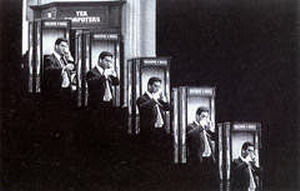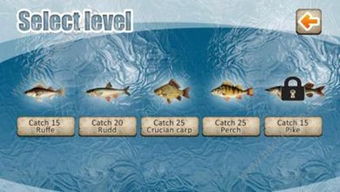Content:
Hook fishing, an ancient and rewarding pastime, has captivated anglers for centuries. Whether you're a seasoned fisherman or a beginner looking to cast your line into the water, learning the art of hook fishing can be both exciting and fulfilling. In this article, we'll delve into the essential techniques and tips to help you master the skill of hook fishing.
Understanding the Basics
Before you can start hook fishing, it's crucial to understand the basics. This includes knowing the different types of hooks, baits, and the equipment you'll need. Here's a quick rundown:
Hooks: There are various types of hooks, each designed for specific fishing scenarios. Jigs, worms, and lures are just a few examples. Choose the right hook size and shape based on the fish you're targeting.
Baits: Baits can be live, dead, or artificial. Live baits, such as worms or minnows, can be highly effective, but artificial baits like lures can also be very successful.
Equipment: A rod, reel, line, and hook are the fundamental components of hook fishing. Ensure your equipment is in good condition and suitable for the type of fishing you plan to do.
Choosing the Right Hook
The right hook can make all the difference in your fishing success. Here are some tips for choosing the right hook:

- Size: The size of the hook should match the size of the bait you're using. A larger hook is suitable for larger baits, while a smaller hook is better for smaller baits.
- Shape: Different fish species are attracted to different hook shapes. For example, treble hooks are great for live baits, while single hooks are often better for artificial lures.
- Material: Hooks are made from various materials, including steel, brass, and stainless steel. Choose a material that is durable and suitable for the type of fishing you're doing.
How to Attach the Bait to the Hook
Properly attaching the bait to the hook is essential for successful hook fishing. Here's a step-by-step guide:
Choose the Right Bait: Select a bait that is appropriate for the fish you're targeting. Live baits like worms or minnows are great for natural fishing, while artificial baits like lures can be more versatile.
Attach the Bait: Hold the hook with the point facing away from you. Place the bait on the hook, ensuring it is centered and secure. For live baits, you may need to thread them onto the hook or attach them with a split ring.
Secure the Bait: Once the bait is on the hook, pull the line tight to ensure it is securely attached. Avoid leaving too much slack in the line, as this can cause the bait to fall off.
Fishing Techniques
Once you have your hook and bait ready, it's time to start fishing. Here are some essential fishing techniques:
Cast Your Line: Hold the rod with a comfortable grip and cast your line into the water. Aim for a spot where you expect fish to be, such as near rocks, logs, or other structures.
Wait for a Bite: After casting, wait for a bite. If you feel a tug or pull on the line, it's likely a fish is interested in your bait. Gently set the hook by pulling the rod back towards you.
Reel in the Fish: Once you've set the hook, start reeling in the fish. Keep a steady pressure on the line to prevent the fish from escaping.
Land the Fish: Once you've reeled in the fish, carefully land it by guiding it towards the shore or using a landing net.
Safety Tips
Safety should always be a priority when hook fishing. Here are some safety tips to keep in mind:
- Always wear a life jacket: This is especially important if you're fishing from a boat or in deep water.
- Be aware of your surroundings: Pay attention to other anglers, boats, and wildlife in the area.
- Handle fish with care: Avoid touching fish with your bare hands, as this can harm them. Use a net or a fishing glove to handle them.
Conclusion
Learning how to hook fish can be a challenging but rewarding endeavor. By understanding the basics, choosing the right equipment, and mastering the techniques, you'll be well on your way to becoming a skilled angler. Remember to practice safety and respect the natural environment while enjoying this timeless pastime. Happy fishing!












